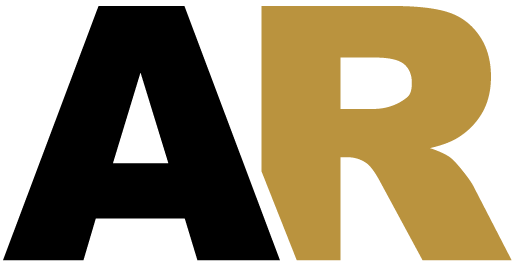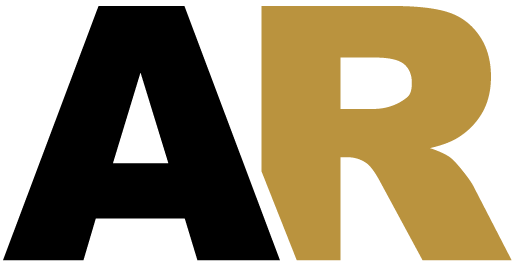This article provides a summary of certain states with prevailing wage laws. There are also federal prevailing wage laws, to include the federal Davis Bacon Act (DBA) and federal Service Contract Act (SCA). In addition to federal and state prevailing wage laws, over one hundred localities have their own prevailing wage or living ordinance requirements. Each may have their own provisions, wage determinations, overtime definitions, and penalties for non-compliance. A project’s funding authority typically determines which set of rules a contractor must follow.
State Prevailing Wage
There are 26 states with their own Prevailing Wage regulations. In states without specific Prevailing Wage statutes, Federal Prevailing Wage laws (Davis Bacon Act / Davis Bacon Related Acts (DBA/DBRA), Service Contract Act (SCA)) still apply. Even without a state PW law, all states may have certain labor laws that vary from what a contractor is used to in their home state. A sampling of certain individual states are included below.
Ohio
Prevailing Wage (PW) law in Ohio is administered by the Bureau of Wage & Hour Administration within the Ohio Department of Commerce.
Ohio requires all contractors and subcontractors to furnish each employee not covered by collective bargaining agreement a written notification of the job classification to which the employee is assigned, the prevailing wage determined to be applicable to that classification (separated into hourly rate of pay and fringe payments), and the identity of the prevailing wage coordinator appointed by the public authority. The same notification shall be furnished to each affected employee every time the job classification of the employee is changed. Here is a sample of an Ohio PW Notification.
Ohio also requires that the prevailing wage rate paid for a legal day’s work shall not be less at any time during the life of a public work contract than the prevailing wage rate of wages payable to the same trade within that locality. This means that the wage/fringe requirement rates can change mid-project (and often will). If it does, an updated PW Notification will be required (see above).
Some public works are explicitly excluded from certain Ohio prevailing wage statutes, such as public improvements undertaken by the state’s board of education.
Illinois
In Illinois, the state’s prevailing wage laws are administered and enforced by the Conciliation and Mediation Division of the Illinois Department of Labor. Prevailing wage rates are defined in two separate laws: The Illinois Prevailing Wage Act, and in the Illinois Procurement Code.
Illinois Procurement Code requires the payment of prevailing wage to service employees working on state contracts. “Services” includes janitorial cleaning services, window cleaning services, food services, security services, and printers. Wage determinations are published no less than annually, and may include minimum requirements for base wage rate, health & welfare, pension, and vacation fringe benefits.
The Prevailing Wage Act applies to laborers, workers, and mechanics employed by or on behalf of any public bodies engaged in public works, which includes any equipment maintenance, repair, assembly, or disassembly. Wage determinations stipulate the payment of wage premiums for hours worked over eight (8) in one day, hours worked on Saturdays, and hours worked on certain predefined holidays.
Similar to Ohio, Illinois also requires that the prevailing wage rate paid for a legal day’s work be at least equal to the locality’s latest wage determination. This means that wage and fringe requirement rates can change mid-project. Also, the time involved for a worker to transport materials or equipment to and from a public works job site is subject to prevailing wage, while the same such transportation by suppliers or sellers would not be covered.
Contractors, especially those from out of state, should be aware of the Employment of Illinois Workers on Public Works Act. This Act essentially requires that during periods of excessive state unemployment, at least 90% of an entity’s employees on a state public works project be Illinois residents, with certain exceptions based on expertise or skill level.
Illinois also passed an amendment to the Illinois Prevailing Wage Act in January 2014, redefining “prevailing rate of wages” to be “the hourly cash wages plus annualized fringe benefits…” Annualization of all fringe benefits is a major shift in fringe benefit calculation. It is imperative for any contractor working in Illinois to understand the significance of benefits annualization before working on a state prevailing wage project.
Missouri
Missouri’s prevailing wage statutes and regulations are administered and enforced by the Division of Labor Standards of the Missouri Department of Labor & Industrial Relations.
Prevailing wage rates for State Highway and Transportation Commission projects are published in a General Wage Order. Also published are Annual Wage Orders, which provides rates on other public construction projects. In each of these wage determinations are specific schedules, by county and worker class, for the payment of Overtime and the payment of Holidays.
While prevailing wage laws are generally consistent in requiring the payment of prevailing wage rates at the “site of the project”, Missouri also requires the payment of prevailing wage rates for the transportation of materials and supplies to or from the site of construction by the employees of the construction contractor or subcontractor.
Additionally, Missouri is one of a few states requiring employees to complete a ten-hour OSHA construction safety program (“OSHA 10”) course no later than 60 days from beginning work at a public works construction project site.
Tennessee
Tennessee’s prevailing wage law is administered by the state’s Department of Labor and Workforce Development. While the prevailing wage law applies to state-funded highways, bridges, and roads projects, it does not apply to non-highway construction.
States without prevailing wage laws
A sampling of certain individual states that do not their own prevailing wage laws are included below.
Indiana
In 2015, Indiana repealed its state prevailing wage law (called the “Common Construction Wage”). Prior to repeal the “Common Construction Wage” was administered and enforced by the Wage and Hour Division of the Indiana Department of Labor.
On Indiana wage determinations, worker classifications were often subdivided by class as “Skilled”, “Semi-skilled”, and “Unskilled”. The defining class factor may have been determined by the employee’s registration in a bona fide apprenticeship program and/or the employee’s total amount of cumulative experience in the construction trades, but classes were not always explicitly defined in the project bid documents.
Kentucky
Kentucky repealed its state prevailing wage law in 2017. Even with the law’s repeal, contractors should still be aware of Kentucky’s Overtime rules and how they vary from the traditional “40 hours a week”. Kentucky is one of a few states to have a “seven consecutive day” law, where an employee who works all seven days of a workweek, who then exceeds forty total work hours on the seventh day, shall have all hours worked on the seventh day classified as overtime.
Kentucky also calculates (and enforces) the overtime premium due in a manner differently than the traditional “time and a half”. Like the Fair Labor Standards Act, for employees working at two or more rates in a week, the overtime premium is based on the weighted average of the hourly rates paid. In other words, divide the total straight time wages by the total number of hours worked. This “blended rate” or “regular rate” is then multiplied by one-half (1/2) to calculate the correct overtime premium, which is then added to the base hourly straight time rate for the specific hours identified as overtime to yield the correct hourly rate. For federal Prevailing Wage contractors this is especially important, since Certified Payrolls must show the overtime premium has been applied to the correct hour.
Virginia
Virginia does not have a state prevailing wage law, but its proximity to Washington D.C. leads to the generation of numerous projects subject to Federal (Davis Bacon Act / Davis Bacon Related Acts (DBA/DBRA), Service Contract Act (SCA)) prevailing wage requirements.
West Virginia
In 2016, West Virginia repealed its state prevailing wage law. Prior to repeal, the law was administered by the Wage and Hour Section of the West Virginia Division of Labor. Even with the law’s repeal, contractors from out of state should still be aware of the West Virginia Jobs Act, which can require a certain percentage of a company’s employees on public improvement projects to be residents of the “local labor market”.
For contractors that do a mix of work, although requirements can differ state to state and project to project, it is of course the contractor’s responsibility to know the requirements on each respective project.





